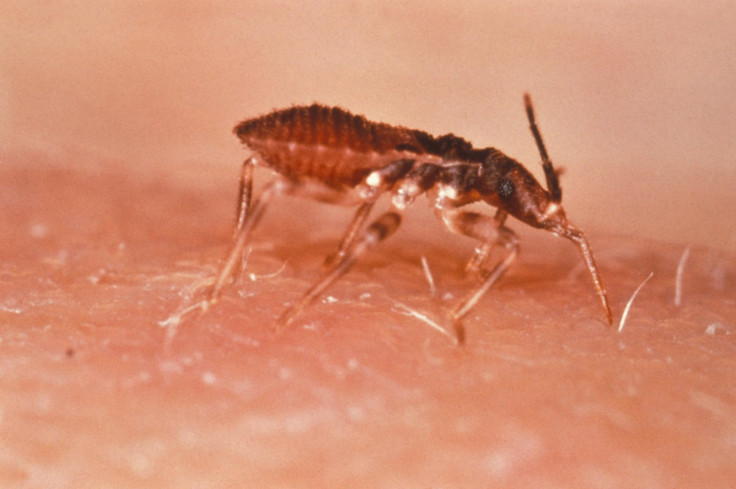‘Kissing Bug’ Disease Creeps Into Southern US: How Serious Is The Threat?

A deadly illness from abroad has made its way to the U.S. – but it’s not Ebola. Several cases of “kissing bug” disease, known formally as Chagas disease, have recently been identified in Texas, according to researchers gathered Tuesday at the annual American Society of Tropical Medicine and Hygiene meeting in New Orleans.
The Washington Post reports that health officials found 17 Houston residents who had been infected with Chagas, a disease native to Latin America that is spread to humans through contact with the parasitic triatomine bug, or so-called kissing bug. The tiny insect feeds on human blood by biting people’s faces during the night. It carries a parasite called Trypanosoma cruzi, which causes the disease.
Additionally, researchers found that one in every 6,500 blood donors in Texas tested positive for exposure to the parasite – about 50 times higher than Centers for Disease Control and Prevention estimates. "We were astonished to not only find such a high rate of individuals testing positive for Chagas in their blood, but also high rates of heart disease that appear to be Chagas-related," Nolan Garcia, an epidemiologist at the Baylor College of Medicine in Houston whose research focused on Chagas disease in the U.S., said in a statement.
CDC officials, however, said they believe most people infected with Chagas contracted the parasite in Mexico or South America before coming to the U.S. About 7 million to 8 million people are thought to be infected with the parasite worldwide, mostly in Latin America, the World Health Organization has said. "There have been a few reports of people becoming infected with these bugs here in the United States," Susan Montgomery of the CDC’s parasitic diseases branch said, according to HealthDay. "We don't know how often that is happening because there may be cases that are undiagnosed, since many doctors would not think to test their patients for this disease.” Montgomery assured Americans the risk of infection is “very low.”
Chagas disease can lead to life-threatening heart disease, health officials said. Most people who contract Chagas do not display any symptoms or only show mild, vague signs like fatigue, body aches and headaches. "We think of Chagas disease as a silent killer," Garcia said. "People don't normally feel sick, so they don't seek medical care, but it ultimately ends up causing heart disease in about 30 percent of those who are infected."
© Copyright IBTimes 2024. All rights reserved.






















